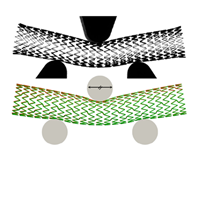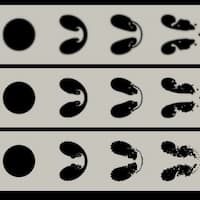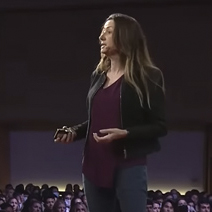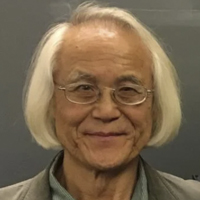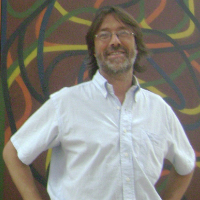events
Severo Ochoa Seminar [Video available!] - "A fully explicit Lagrangian Finite Element Method for highly nonlinear Fluid-Structure Interaction problems", by Massimiliano Cremonesi
Wednesday, December 15th, 2021. Time: 12 noon
Blended Learning - C-116 Room, Gran Capità S/N, C1 Building, UPC Campus Nord, Barcelona- Link for online session: https://meet.google.com/qjo-sttx-dgo
ABSTRACT
The numerical simulation of fluid-structure interaction (FSI) problems involving free-surfaces is of great interest in many engineering applications. In this talk a partitioned approach for the solution of the FSI problem will be presented. An explicit version of the Lagrangian Particle Finite Element Method (PFEM) is employed for the fluid modelling while the solid domain is discretized with a standard Finite Element Method (FEM). The proposed fully Lagrangian description is particularly effective in the simulation of FSI problems with free surface flows and large structural displacements, since the fluid boundaries are automatically defined by the position of the mesh nodes with no need for interface tracking algorithms. The conditional stability of explicit time integration schemes requires the use of time increments proportional to the size of the element in the mesh. To drastically reduce the computational time, a novel efficient runtime mesh smoothing algorithm for explicit Lagrangian PFEM will be presented. The coupling between the fluid and solid domains is treated with a Domain Decomposition approach. The proposed method allows for different time-steps in the two subdomains and for non conforming meshes at the interfaces between the solid and fluid domains. The method ensures strong coupling and stability of the partitioned solver, retaining at the same time an overall system of fully decoupled explicit equations. 2D and 3D test-cases will be presented to validate the proposed coupling technique. The explicit scheme for both the fluid and solid subdomains, together with the explicit treatment of the coupling, makes this method appealing for applications in a variety of engineering problems with fast dynamics and/or a high degree of non-linearity.
SPEAKER CV
Massimiliano Cremonesi is Associate Professor of Solid Mechanics at the Department of Civil and Environmental Engineering of Politecnico di Milano (Italy). Massimiliano received his B.Sc. (2004), M.Sc. (2006) and Ph.D. (2010) degrees from Politecnico di Milano (Italy). During his PhD, in 2017 and 2009, he was a visit Ph.D. student at CIMNE at the Universitat Politècnica de Catalunya (Spain). Upon earning the Ph.D. degree, in 2011 he joined the Laboratoire de Mécanique et Technologie (LMT) at the École Normale Supérieure de Cachan (France) for a PostDoc, then he went back to Politecnico di Milano where in 2014 he is appointed as Assistant Professor and in 2019 as Associate Professor. His research interests include the numerical simulation of fluid flow for compressible and incompressible applications, the fluid-structure interaction, the simulation of multiscale problems with model order reduction techniques and the analysis of solid dissipation in micro-structures.





